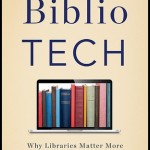When you go to your bookseller of choice and buy an ebook, it costs whatever the dealer says it costs. Anything from free to $14.99 or the equivalent per country.
 The real caveat isn’t the different currency, the “trick” is in that three-letter-word “buy”. Because as we all know but conveniently forget, we don’t buy our ebooks, or any electronic media, including software. We license it from the supplier. Which means that they can set the terms of the license.
The real caveat isn’t the different currency, the “trick” is in that three-letter-word “buy”. Because as we all know but conveniently forget, we don’t buy our ebooks, or any electronic media, including software. We license it from the supplier. Which means that they can set the terms of the license.
Back to the question of the cost of an ebook. The price to an individual, meaning you and me, is what the seller (Amazon, B&N, Book Depository, etc.) says it is. Because that’s the arrangement that those suppliers have made with the publishers. You remember the publishers, and that little anti-trust lawsuit problem they have with the U.S. Government about, you guessed it, the price of ebooks? (If not, see this Bookish Rant)
About that cost of ebooks … have you ever checked an ebook out of your public library? Did you know that libraries have ebooks for you to check out? They very definitely do, but there are a couple of issues, and they boil down to that cost of ebooks problem.
 If you’ve ever tried to check an ebook out at your local public library, you might have discovered that there are a number of ebooks that just plain aren’t available at the library, but that you know perfectly well are available from Amazon and B&N. There’s a reason for that and it’s not pretty.
If you’ve ever tried to check an ebook out at your local public library, you might have discovered that there are a number of ebooks that just plain aren’t available at the library, but that you know perfectly well are available from Amazon and B&N. There’s a reason for that and it’s not pretty.
Those “Big 6” publishers in the price-fixing anti-trust lawsuit? (Only five are in the price-fixing suit, but the “Big 6” publishers are: Hachette Book Group, Harper Collins, Macmillan, Penguin Group, Random House and Simon & Schuster). Only Harper Collins and Random House currently license frontlist ebooks to libraries in the U.S. Hachette licenses backlist titles only. Penguin, Macmillan and S&S just say no, although Penguin and Macmillan are “experimenting with some models of access”. Scholastic Books, the publishers of The Hunger Games, also just says “no”.
This means that more than half the big publishers have said they don’t want libraries’ money, not at any price. Why? Because they are afraid, and yes, I do mean afraid, as in scared out of their socks (and wits), that people might borrow ebooks instead of buying them. This is in spite of increasing evidence that people who borrow books actually buy more books.
So if you’re wondering why you can’t borrow an ebook of Sylvia Day’s Bared to You from your public library, it’s because she’s published by Berkley Books, a division of Penguin. J.K. Rowling’s The Casual Vacancy is being published by Little, Brown, and guess what? Little, Brown is a division of Hachette.
 But some publishers do want libraries’ money. They just want LOTS of it. If you want to buy a copy of Fifty Shades of Grey, it costs $9.99 as an ebook. If a library wants it, they can buy it alright, but it costs $47.85. Think about that for a minute and gasp. It’s still one copy. It can only be out to one person at a time, just like the print book. What makes the publisher think it’s worth five times as much? (If you want the entire gruesome picture, take a look at this price comparison from the Douglas County Libraries in Colorado.)
But some publishers do want libraries’ money. They just want LOTS of it. If you want to buy a copy of Fifty Shades of Grey, it costs $9.99 as an ebook. If a library wants it, they can buy it alright, but it costs $47.85. Think about that for a minute and gasp. It’s still one copy. It can only be out to one person at a time, just like the print book. What makes the publisher think it’s worth five times as much? (If you want the entire gruesome picture, take a look at this price comparison from the Douglas County Libraries in Colorado.)
Libraries have very finite, and often shrinking budgets. If they spend a lot in one area to keep patrons happy, that money has to be taken from somewhere else. If a very, very popular ebook like Fifty Shades costs five times as much as it should, or if Gone Girl costs $25 instead of the $12.99 that it should, something else doesn’t get bought. Like more debut authors, or more genre fiction (like romance) or simply having more titles to choose from all the way around.
When the library purchases fewer titles to satisfy the clamor for high-demand titles on the best-seller list, mid-list and debut authors lose sales. They get lower advances for their next books, or publishers don’t buy their books at all. What happens then? It’s a vicious cycle. Or a circle towards the drain. (Insert your metaphor here)
Some of you are thinking that this won’t matter to you, that you either don’t use your local library, or that you only borrow print books. Or even that you only read print books. There’s a couple of other thoughts I’d like to leave you with before I get down off my soapbox.
 Ebooks are now the dominant form of distribution for adult fiction in the U.S. More adult fiction is purchased in ebook format than any other format. More than hardcover, more than trade paperback, more than mass market paperback. Not more than all of them combined, but more than any one of them individually. And don’t think the day won’t come when ebooks do pass all of them combined for categories like adult fiction. This snowball is already rolling down that hill and picking up speed. And debris.
Ebooks are now the dominant form of distribution for adult fiction in the U.S. More adult fiction is purchased in ebook format than any other format. More than hardcover, more than trade paperback, more than mass market paperback. Not more than all of them combined, but more than any one of them individually. And don’t think the day won’t come when ebooks do pass all of them combined for categories like adult fiction. This snowball is already rolling down that hill and picking up speed. And debris.
Publishers make more profit on hardcovers than they do on ebooks, so hardcovers aren’t going away. But authors I heard speak at Dragon*Con were saying that this is the beginning of the end for mass market paperbacks. Ebooks are more profitable for the publishers to produce than mass market paperbacks, and consumers are voting with their dollars for ebooks over mass market paperbacks.
I love the convenience of ebooks. I buy them in bed at midnight and they are right there, right then. But I want every book I buy to be available for my local library to purchase too, so everyone can enjoy them. (Libraries are fantastic for “try before you buy” for new-to-me authors) What happens, not if, but when publishers only publish first-time authors in ebook, and libraries can’t buy those books?








You forgot the other reason publishers are so afraid of ebooks: piracy.
Get online, throw a [virtual] brick, and you’ll hit a file-sharing site. Now that ebooks are eclipsing paperbooks in popularity, there is no shortage of ebook piracy going on. DRM restrictions are just a minor impediment easily removed with a widely-available application.
As an attorney who loves the first amendment, a huge nerd, and a early tech adopter, I have pretty mixed feelings on industry response to piracy. Particularly in light of all the lessons we [should have] learned with music, movie, and TV show piracy.**
I am, however, 100% certain, that raising the prices of ebooks is NOT the answer. As you noted, people who borrow books buy more books. Would making ebooks cheaply and easily available for borrowing (either through libraries or directly from the source) combat piracy? No idea. NO ONE HAS TRIED IT. It’d be worth a shot.
But publishers are not adjusting their game plans for new platforms, and are hurting themselves, and authors, by making ebooks prohibitively expensive (and thus encourage piracy).
Example: ebook copy of An Apple for Creature. A book I would have pre-ordered if the ebook was the same price as the hardover. Which was ridiculous!
**Dr Who is now shown the same day on the BBC and BBC America! Staggering release dates by country is no longer economically or technologically feasible. Fans are too impatient. An easy fix. Why did it take years to get to that point?
My dear Dracon, I didn’t forget about piracy. It’s just that if I started down the road of screaming about how the publishers have confused allowing people to borrow ebooks from the library with potential piracy, I might never stop.
Piracy happens. Shutting out a legitimate sales avenue and legitimate borrowing avenue is NOT a method to combat piracy.
I still think that Baen Books has the right idea all the way around. They give away the first book or two in a LOT of their series in ebook. They’re willing to bet you’ll be hooked and buy the rest. And the ebook is cheaper than the print. Also no DRM. Win, win and win.
It’s pretty crazy to think of the price libraries have to pay for an ebook.
Do they pay more for paperbacks/hardcovers too?
No, they generally pay the same or less for paperbacks and hardcovers. Libraries get discounts on print the same as bookstores because of volume. This is for what’s called trade books, like the stuff regular folks buy.
One library I worked at bought 1,000 copies of the last Harry Potter book. We paid the same as a bookstore, 43% discount off the cover price.
There are exceptions for things that only schools and libraries buy. That stuff is priced differently because there’s no volume market.
1,000 copies of the book? O_O wow. That must have been one big library O_o. LMAO
Then it really doesn’t make sense to make libraries pay more for the book. I mean from what I understand (because my library doesn’t have ebooks) they can only lend an ebook a definite number at a time no? So it’s just like if they had a certain number of print copies? Or I got it wrong.
Anyway it’s still insane.
It was a VERY big library. YES! With LOTS of branches. And we are talking about Harry Potter, after all.
About the ebooks, the library can only lend one ebook to one person at one time, just like a print book. Which sounds totally stupid when I write it, because its just electrons, but that’s the arrangement to make the publishers happy.
So, just like the print, if a library wants 5 people to have 50 Shades all at the same time, they would have to buy 5 ebook copies. At $47.85 per copy. It adds up really fast!
Now how much 50 Shades is actually worth? Whole other discussion. But definitely not $50 bucks a copy.
I thought some publishers also had–or were thinking about implementing–restrictions on how many times an ebook could be checked out before the library would be required to buy a new copy/license.
I suspect that some day in the (possibly not-so-distant) future, business students will be studying about the implosion of the big publishing houses and how they were destroyed from within by their own shortsightedness.
How much is 50 shades worth? Oh yes, I could write a whole post about how people should in fact BE PAID to read about abuse and misogyny. Only way to cover the accompanying therapy.
Then yes that’s exactly what I understood. in this case it’s just not logical to ask for more. It should be even less than prints…after all as you said it’s just digital!
Ebooks here and libraries, not a good story. The biggest library in the country had to close their lending service cos it cost too much. For every book borrowed it costs a sum (+getting it in the first place). And if you mess up and dl it 3 times, well it costs every time. Sigh
Fabulous post, btw.
Thanks very much, Susan!
And yes, Harper Collins does restrict the number of times a copy of a library ebook can be checked out before the library has to buy a replacement copy. The limit is 26 times.
That used to look like a horrible option. But it’s better than no option at all. And those copies are at current retail price. So when a book is brand new, like Michael Chabon’s Telegraph Avenue, the cost of the ebook is $9.99 or a bit more. If the 26 circulations don’t get used up until after the book goes to paperback, when the library has to buy new copies, the new copies will be at the lower price that gets set then.
If the book isn’t very popular in ebook, the library might never use up those 26 checkouts. If it’s terribly popular, they might decide to buy more copies every time the 26 get used up.
But it’s turning out to be better than $47 up front. It’s also better than “just saying no”.
Great post, thank you. Some of those ebook prices are absurd, but I do love my mass market paperback! I really do hope they will be printed instead of those trade size. They don’t fit my shelves as prettily. Need more room I don’t have.
thanks for all the great information. I had no idea how it worked with libraries. damn shame
Fantastic post! I don’t even know how to say what I feel about publishers at this point – part of the problem is that they insist on acting as if we are still in the 1800’s – they haven’t changed their business models in a long time and they really are almost clueless when it comes to looking at the future of books – I wouldn’t mind paying more for an ebook or even a paper based book if the author was getting more revenue but it’s not about the author at this point it’s all about the publisher. I love Baen books and it is so much easier dealing with them than the other publishers but a lot of what I read is put out by the Big 6 – I wish the publisher wouldn’t treat libraries as if they were some kind of pariah..it’s ridiculous that they act the way they do towards them in regards to ebooks. As far as piracy – you can’t dictate morality – we’ve tried it and the only time it works is if there is a stringent detriment but most of the pirates are not US based – they are overseas in places like China where their government actually encourages this kind of thing – so why punish everyone else for that? Plus a lot of pirates do what they do as a way of thumbing their nose at society or business – not about them actually wanting or needing the book